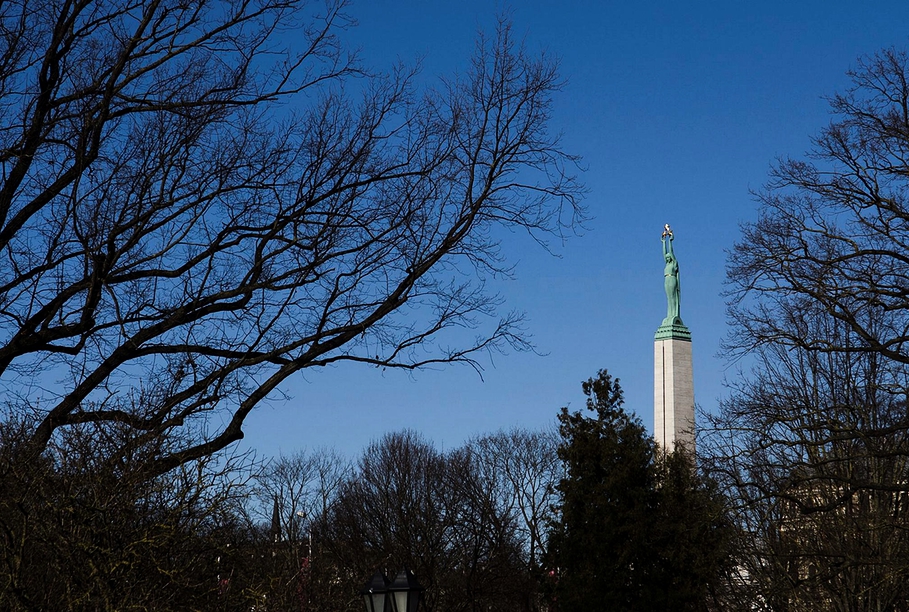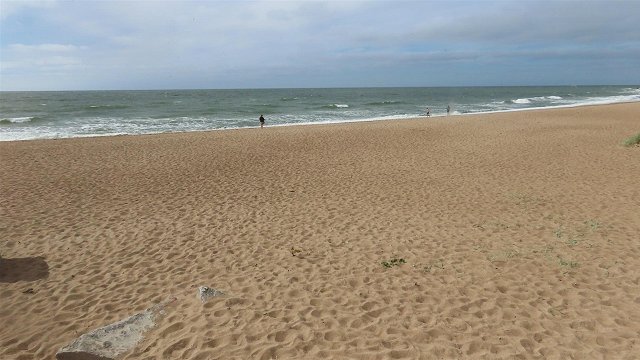On Sunday throughout most of Latvia record highs were set for the date of March 15, according to the state Environmental, Geological and Meteorological Center (LVĢMC).
The thermometer reached between +9 and +12 degrees Celsius in most of the country, with cooler air on the Riga Gulf coast of Kurzeme, where at 14:00 in the afternoon the temps stayed within the +4 to +6 degree range.
Altogether thirteen new high-temperature records were set for March 15 and many locales reached previously fixed records. Also last week at the horn of Kolka on March 8 the highest-yet temperature this year at +14.1 degrees was reached.
Overnight to Monday temperatures promise to dip back down below zero in many parts of the land, ranging between -4 to +2 degrees.
However Monday looks to be another likely record-setter, as a previous March 16 temp record at +12.4 should be exceeded by an expected high of +13. Skies will be completely clear with no chance of precipitation and a light wind from the east, southeast will pick up moderately by midday.
Riga will also have a dry and sunny day, with a chilly morning between -1 and +2 degrees giving way to +12 degrees by afternoon.
Again, the inner Riga Gulf coast of Kurzeme province will be a few degrees cooler than the rest of the country.
A high-pressure system is settling in, bringing the highest barometer readings in three years to the region. The anticyclone is centered on Finland and the west of Russia and will remain in place until March 19, bringing dry, sunny days and cold, starry nights until Thursday.
The dry conditions are certain to prolong the grass-burning hazards that are keeping state Fire and Rescue Service (VUGD) brigades busy across the nation, as blazes devour hectares of fields and often spread to adjacent houses and buildings. Already at the weekend’s halfway point Sunday morning 155 fires had been reported, the largest of them spanning 12- and 10-hectare swaths of land.
VUGD officials are concerned that the spate of dry days ahead could increase the chance of the grass fires spreading into forests, especially new-growth pine groves, which are vulnerable to fire in early spring.
However at the end of the week forecasts call for the possible arrival of Arctic air masses, which, if they do arrive, will cause temperatures to plunge by at least ten degrees and bring brief snowfall to many areas of the country.






























